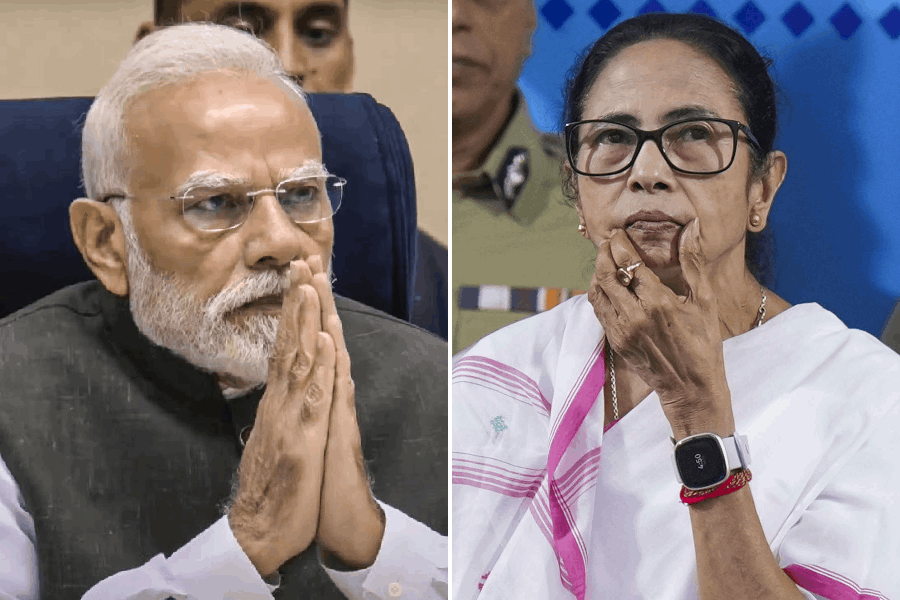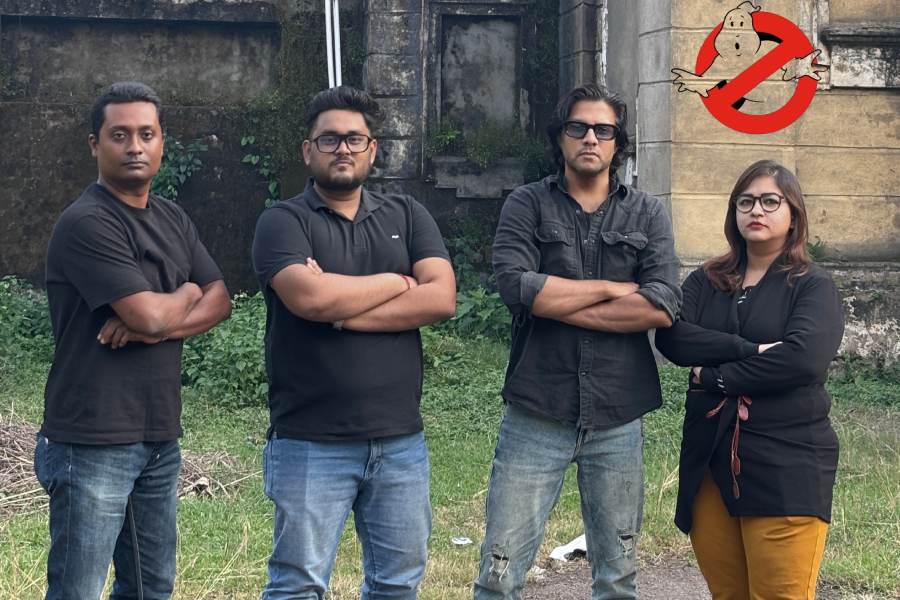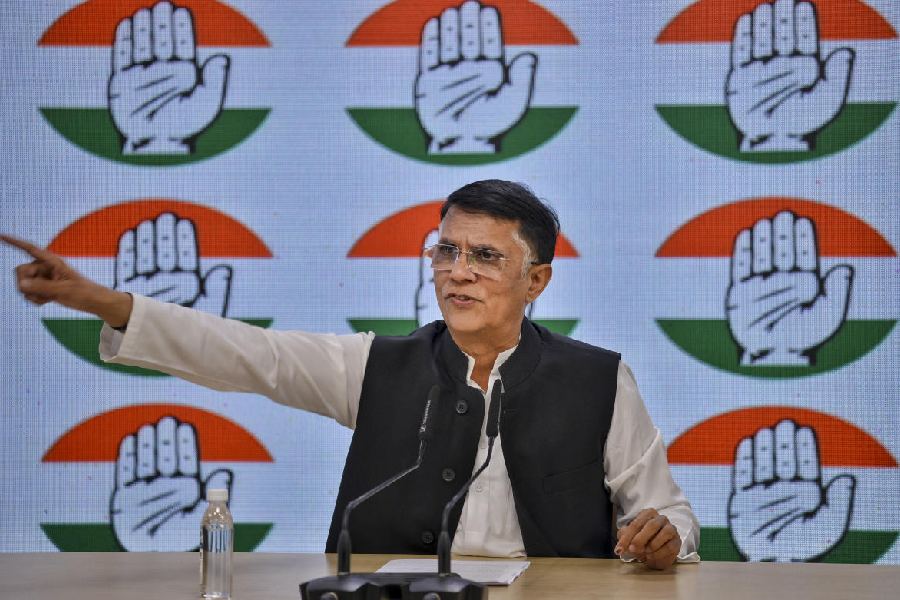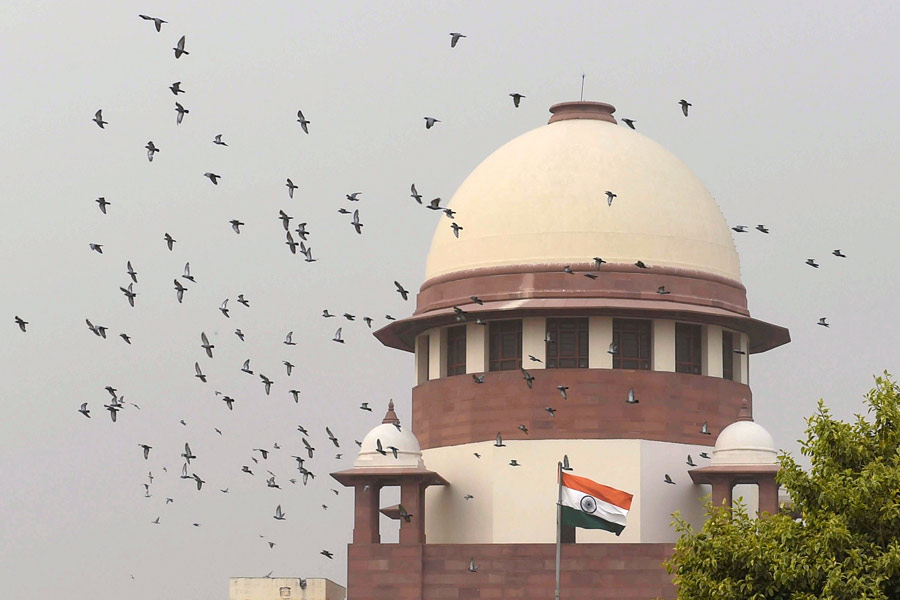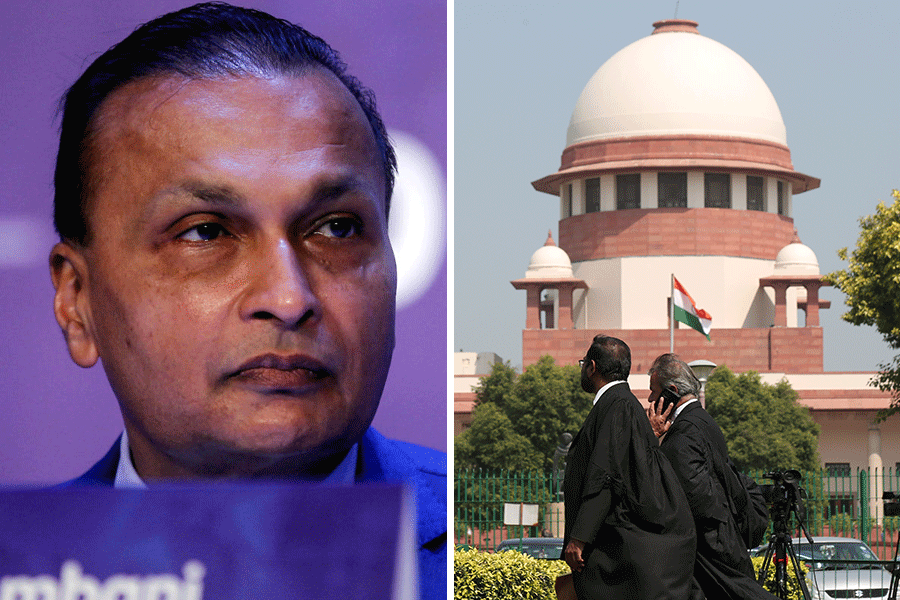 |
The universal order would have to be in place. There could be no compromise in the chronology of their creations, each precious song or story having found its own precious place in the firmament. There could be no room anymore to falter, no room for coincidence. So when Bhupen Hazarika visited Mamoni Raisom Goswami at the Guwahati Medical College and Hospital on a cold morning in February this year, when the writer was in intensive care, the singer himself quite ill and in a wheelchair by then, he would command, if not reprimand her, like an older brother to his kid sister.
“You cannot go before me Mamoni,” Bhupenda said, “I am still here.”
Mamoni, too ill by then, wasn’t heard saying “yes”, but she must have heard him, for she stayed on, hanging onto the last feeble strains of her breath till after he passed. She did his bidding, leaving their people — reader, listener and suffering layman — only three weeks and three days after he did.
At 7.45 this morning, the mind that wielded Mamoni Raisom’s pen through a million myriad mysteries, lay still. Dusk had descended once again over her people and her place, and a little too soon.
“I was deeply saddened to learn of her passing away,” Prime Minister Manmohan Singh said from Delhi. “She was one of the most influential writers and commentators in Assam in recent times. She taught at Delhi University with distinction. She played an important role in bringing peace to Assam.”
“A poet, a novelist, an essayist of repute, an illustrious interpreter of the Ramayan, a great connoisseur of art and a renowned social reformer, she fought for the cause of peace all throughout her life and her efforts for return of peace in Assam would be long remembered,” said Assam governor J.B. Patnaik.
“Assam’s peace process today is a result of what Mamoni Raisom Goswami started,” said Assam chief minister Tarun Gogoi, after he went to offer Mamoni his respects at the hospital.
The state will be in mourning for three days, a letter from chief secretary N.K. Das said.
Government offices and educational institutions would remain closed tomorrow, the day of the cremation.
Mamoni would be given a funeral with state honours, the government said.
“She was a very sincere person and she tried to bring about reconciliation,” said former Union home secretary G.K. Pillai, who came in contact with her during the time she had helped bring Ulfa rebels to the negotiating table for peace talks.
Mamoni’s body had done its best before it gave way. “Baideo suffered a massive heart attack on November 26, even while she was on life support. Her condition worsened when she suffered a second heart attack, this time on the evening of November 28,” said Ramen Talukdar, superintendent of the Guwahati Medical College and Hospital where Mamoni had laid, in bed and ailing for over five months after she returned from Medanta — The Medicity in Gurgaon.
“A team of senior and super-specialty doctors from various departments immediately started treating her and carried out various investigations. A temporary pacemaker was also implanted late on Monday night. Despite this her condition deteriorated and she showed signs of sinking throughout last night. She died of multiple organ failure but the final cause of her death was a massive cardiac arrest with severe septicaemia, a life-threatening infection that worsens very quickly.” Those she had tried to bring away from the killing fields that marked her land too would reach out to her in her death.
“It is a matter of great sorrow and loss even as we try to come to grips with the passing away of Bhupen Hazarika,” said a statement of the Paresh Barua group of Ulfa. “We deeply condole her demise and express our sympathy towards the bereaved family,” said the Arabinda Rajkhowa group of Ulfa. “The newly-formed Assam Nava Nirman Kendras across the state have also condoled her death,” they said.
The condolences came from all communities: the Bodo Sahitya Sabha, the All Bodo Students Union, the All Assam Tribal Sangha, the All Assam Tribal Youth League, the Asom Nepali Sahitya Sabha, the All Assam Gorkha Students’ Union said Mamoni’s death was an irreparable loss not only to Assam but to Indian literature. Among the patients she spent her last days with, the silence was heart-rending. In the ICU, those who could make it to the window gathered there to watch Mamoni’s body being taken to the vehicle that would take her home one last time.
After Bhupenda, Assam lost a woman whose life was dedicated to humanity,” said Kalpana Das, one of nurses who had taken care of her for several months in the ICU.
As news of Mamoni’s demise spread this morning, they gathered, those who met her, read her, had known her and will always love her.
But there stood out perhaps a message from Delhi, where like a mother to her children, Mamoni had stood by her flock all through the many years she spent there. “We are going to be living in an age without legends,” Manoj Das, secretary of the Assam Association in the capital said.
Tomorrow, as flames once again rise high to claim Mamoni Raisom, as they did to claim Bhupenda three weeks ago, the guns will fire once again into the air before they reverse — in peace, as they always wanted. It’s what their songs and stories, and lives, yearned for.


